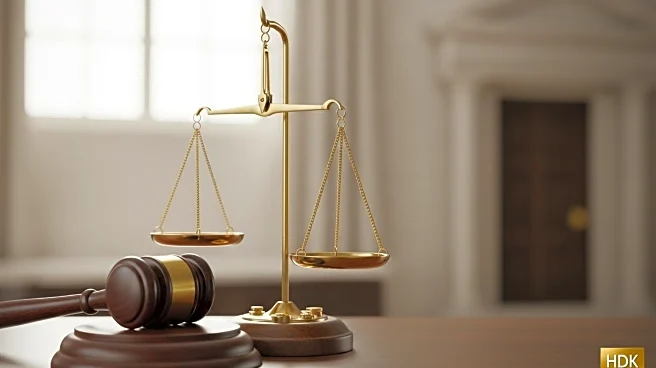What's Happening?
A federal judge in Oregon has temporarily blocked the Trump administration's plan to deploy National Guard troops to Portland. The decision comes amid ongoing protests against Immigration and Customs Enforcement (ICE) in the city. US District Judge Karin Immergut ruled that deploying active-duty troops would violate the US Constitution and federal law prohibiting military involvement in domestic law enforcement. The judge noted that recent protests outside a Portland immigration facility were not notably violent, contradicting the administration's justification for troop deployment. The temporary restraining order will expire in 14 days, during which the White House plans to appeal the decision.
Why It's Important?
The ruling highlights the tension between federal authority and state rights, particularly in the context of domestic law enforcement. The decision could set a precedent for how federal intervention is managed in cities experiencing civil unrest. The Trump administration's approach to handling protests has been controversial, with critics arguing that it undermines local governance and escalates tensions. The outcome of this legal battle may influence future federal responses to protests and impact the relationship between federal and state governments.
What's Next?
The White House plans to appeal the judge's decision, expecting vindication from a higher court. Meanwhile, President Trump has directed his administration to review federal aid to Portland, potentially cutting funds as a punitive measure against local officials. The administration also plans to increase federal resources in Portland to restore order. The legal and political ramifications of these actions will likely unfold in the coming weeks, affecting both local governance and national policy on protest management.
Beyond the Headlines
The case raises questions about the balance of power between the executive branch and the judiciary, as well as the role of the military in domestic affairs. It also touches on broader issues of civil liberties and the right to protest, which are central to democratic governance. The ongoing unrest in Portland reflects deeper societal divisions and the challenges of addressing them through policy and law enforcement.










